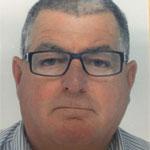Investment Mis-Selling News Round-Up
Published on:
Investment mis-selling never seems to be out of the news for long. UK banks and other financial institutions are taking steps to stop mis-selling in their sales teams, but the pressure to clean up their acts only grows as they come under increasing public scrutiny.
We’ve rounded up the latest investment mis-selling news to help you keep informed, stay alert and hold the banks to account for their financial malpractice.
Brokers vs Regulators
• Lloyds appeal against FOS
In September 2015 Lloyds appealed against a Financial Ombudsman Services (FOS) decision regarding the mis-selling of an investment product to a customer known only as Mrs T.
They claimed it was unreasonable for the FOS to expect them to have information about a policy started in 1995 and that the fine was based on speculation rather than fact.
Ombudsman Tony Moss responded: “There is no hard evidence about [Mrs T’s] financial objectives or existing savings. But I don’t think that a 15-year savings policy was a suitable recommendation when she planned to retire in seven years’ time.”
• 9 in 10 say FSCS needs reform
90% of respondents to an August 2015 poll carried out by Mortgage Strategy believe the Financial Services Compensation Scheme (FSCS) needs reform.
Brokers expressed anger over the fact that they are classified as ‘life and pensions’ businesses, meaning that they are expected to pay a levy for poor pension’s advice even though they don’t actually offer advice in these areas.
London & County director Pat Bunton claims that his firm has had to pay over £250,000 this year (2015) and that close to three quarters of the levy related to life and pensions.
He comments: “This infuriates me as we don’t hold investment or pensions with the FCA [Financial Conduct Authority], yet we are expected by the FSCS to pick up the bill of miscreants in that area.”
Unscrupulous Brokers and Financial Institutions Exposed
• WH Ireland refuses to comment on mis-sold investments
This is Money investigator Tony Hetherington highlighted that well-established broking firm WH Ireland declined to comment regarding a client who lost over £500,000 on mis-sold investments.
On 22nd August 2015, Mr Hetherington reported that the firm refused point-blank to answer any questions regarding the case, citing company policy.
The FOS awarded the client £150,000 plus interest, the maximum that can be given in compensation. Despite this, the customer still remains considerably out of pocket and says that he “cannot go back to work” as he is now 78 years old.
The FOS investigation found that the client’s attitude to risk had not been assessed and that WH Ireland failed to explain that, since some of the shares were high-risk, they could result in complete loss of initial investment.
WH Ireland paid the minimum required fine outlined by the FOS but did not pay the full recommended amount.
• Mis-sold investments for ex-pats
Laws are tightening on unscrupulous selling practices in the UK, but the same cannot be said for investment firms abroad.
An investigation revealed on 9th August 2015 by the Telegraph found that investments made while in another country are either lightly regulated or not regulated at all – which leaves many Brits vulnerable to poor investment advice overseas.
Sarah Lord, head of financial planning in a UK-based FCA-regulated firm, commented: “The operation of offshore advisers, in the main, is totally unscrupulous.
“In many offshore jurisdictions, such as Dubai and the United Arab Emirates, there is very little requirement for disclosure of remuneration, with up to 15% of assets being advised upon being taken in hidden commissions. The requirement to demonstrate suitability is negligible.”
Successful Compensation
• £190,000 awarded
Back in February 2015, an anonymous couple were awarded a whopping £190,000 in compensation after receiving “unsuitable advice” from deVere UK, one of the world’s best known financial advisers.
Despite the fact that the couple were rated as ‘cautious to realistic investors’, they were advised to invest in high-risk funds to hold within an offshore bond.
After losing considerable amounts of money, the couple were advised to take action and received compensation.
A spokesman for deVere said: “Following a comprehensive internal investigation, we accepted a mistake was made and for this we apologise unreservedly. We rectified this mistake and reimbursed the client.”









